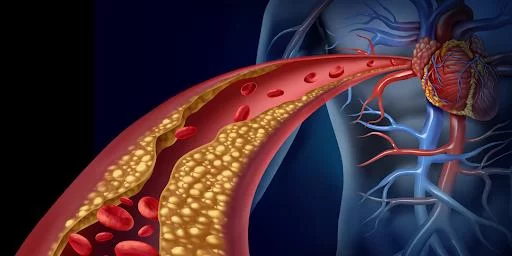The Truth About Cholesterol and Heart Disease: What You Need to Know
- Understanding Cholesterol: Good vs. Bad
- Debunking Common Cholesterol Myths
- The Cholesterol and Heart Disease Connection
- Steps to Manage Your Cholesterol and Protect Your Heart
- Real-Life Case Studies on Cholesterol Management
- Final Thoughts and Why You Should Act Now
Understanding Cholesterol: Good vs. Bad
Cholesterol is a fatty substance that is essential for building cells and producing certain hormones. However, not all cholesterol is the same. There are two main types: Low-Density Lipoprotein (LDL), often referred to as "bad cholesterol," and High-Density Lipoprotein (HDL), known as "good cholesterol." The key difference lies in how they affect your heart health. LDL can build up in your arteries, leading to atherosclerosis, while HDL helps remove excess cholesterol from your bloodstream.
Debunking Common Cholesterol Myths
Over the years, many myths about cholesterol have circulated. One of the most pervasive misconceptions is that all cholesterol is bad for you. In fact, as mentioned earlier, HDL is actually beneficial for heart health. Another common myth is that cholesterol-rich foods like eggs should be avoided at all costs. While it's true that certain foods can affect cholesterol levels, it's essential to focus on overall diet quality and lifestyle changes instead of eliminating specific foods.
The Cholesterol and Heart Disease Connection
Cholesterol plays a significant role in heart disease. High levels of LDL cholesterol can lead to plaque buildup in your arteries, making it harder for blood to flow and increasing the risk of heart attack or stroke. However, cholesterol alone is not the sole factor; lifestyle, genetics, and other health conditions like hypertension also contribute to heart disease. It’s crucial to monitor and manage your cholesterol levels regularly to reduce the risks associated with heart disease.
Steps to Manage Your Cholesterol and Protect Your Heart
Managing cholesterol is within your control. Here are several key steps to take:
- Adopt a heart-healthy diet rich in fruits, vegetables, whole grains, and healthy fats like those found in avocados, nuts, and olive oil.
- Exercise regularly, aiming for at least 30 minutes of moderate-intensity activity most days of the week.
- Quit smoking and limit alcohol consumption to improve overall heart health.
- Consider medication if prescribed by your doctor, especially if your cholesterol levels remain high despite lifestyle changes.
Real-Life Case Studies on Cholesterol Management
Take the example of Sarah, a 45-year-old woman with a family history of heart disease. Despite maintaining a healthy weight and active lifestyle, her cholesterol levels were higher than recommended. After making changes to her diet and incorporating a statin medication, she was able to bring her LDL levels down significantly. Regular monitoring, along with these lifestyle changes, helped her reduce her risk of heart disease.
Final Thoughts and Why You Should Act Now
The connection between cholesterol and heart disease is clear, but it’s also preventable. By making small, consistent changes to your lifestyle, you can protect your heart and improve your cholesterol levels. Whether it's adopting a heart-healthy diet, increasing physical activity, or using cholesterol-lowering supplements, the time to act is now. If you're looking for high-quality supplements to help manage your cholesterol levels, don't wait. Take charge of your health and give your heart the care it deserves!





















